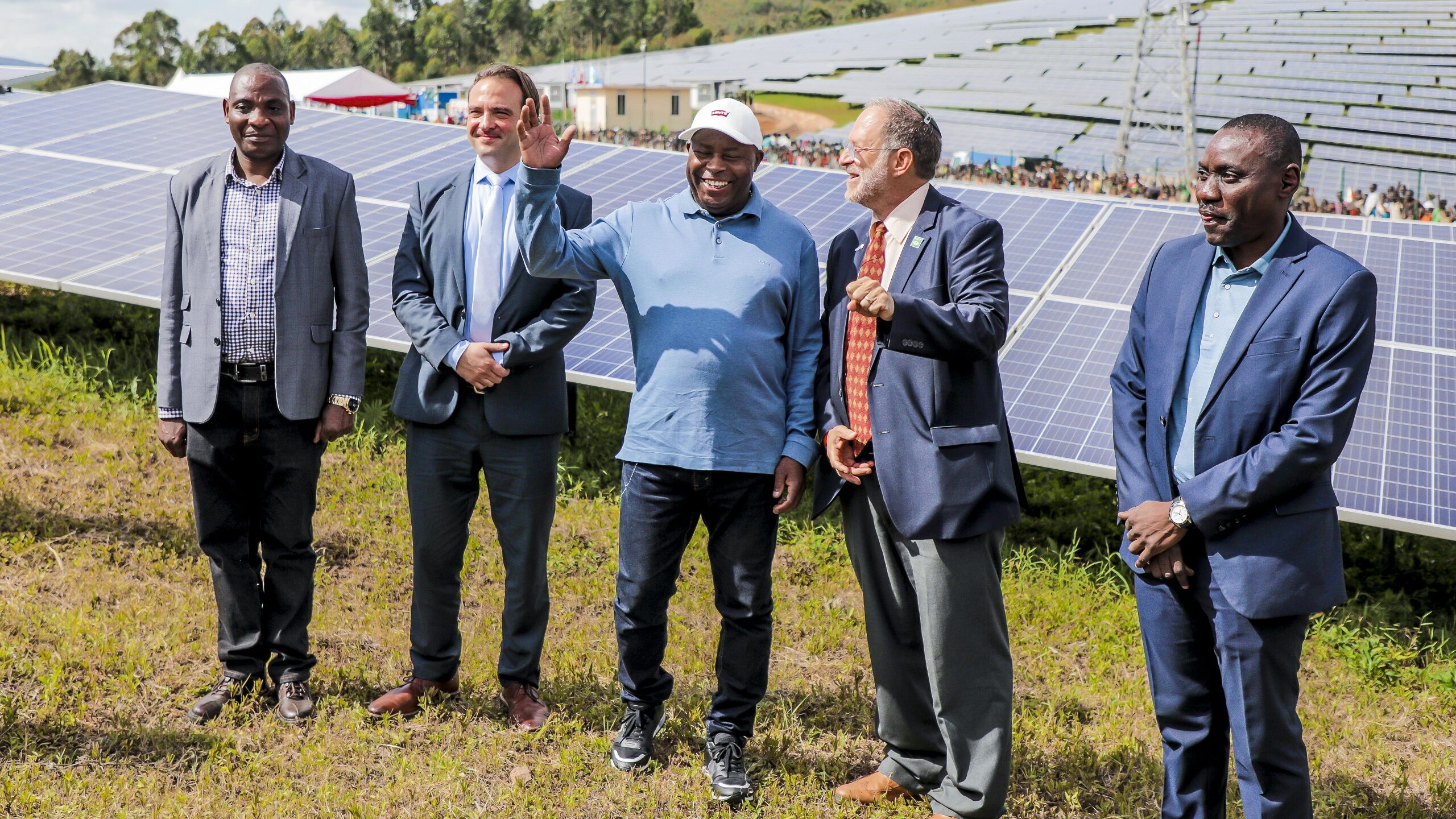Burundi Inaugurates Country’s First Utility-scale Solar Power Field
Thanks to a Jerusalem-based company, Burundi, one of the least developed countries, now has the world’s only capital city powered 100% by solar energy during the daytime
President of Burundi Évariste Ndayishimiye officially inaugurated a solar power plant near the country’s capital on Tuesday together with the CEO of the renewable energy company Gigawatt Global. The solar field, which is in Mubuga in the central Gitega province, has provided more than 10% of Burundi’s electricity since becoming operational two years ago.
At the inauguration, President Ndayishimiye and Gigawatt Global CEO Yosef Abramowitz discussed plans to increase the solar field’s generating capacity, hoping to double the amount of energy it produces.

Historic ribbon cutting by Burundi President, Évariste Ndayishimiye, for the Burundi 7.5MW solar field, near the village of Mubuga, Burundi, May 9, 2023. Gigawatt Global CEO Yosef Abramowitz, to his left, inaugurates his 18th solar field in 17 years. (Courtesy Gigawatt Global)
The solar field was constructed between January 2020 and October 2021 by Gigawatt Global’s local subsidiary Gigawatt Global Burundi SA. The multinational effort was Burundi’s first substantial energy generation project in over three decades, and the 7.5-megawatt solar field is the country’s first utility-scale solar power station.
We wanted to show the world that clean energy is not just for rich countries, but it can be for all people, and it can bring social and economic development
Abramowitz told The Media Line that the project’s success proves that solar energy is a viable solution for developing countries. “We wanted to show the world that clean energy is not just for rich countries, but it can be for all people, and it can bring social and economic development,” he said.
Give the gift of hope
We practice what we preach:
accurate, fearless journalism. But we can't do it alone.
- On the ground in Gaza, Syria, Israel, Egypt, Pakistan, and more
- Our program trained more than 100 journalists
- Calling out fake news and reporting real facts
- On the ground in Gaza, Syria, Israel, Egypt, Pakistan, and more
- Our program trained more than 100 journalists
- Calling out fake news and reporting real facts
Join us.
Support The Media Line. Save democracy.
Abramowitz grew up between Israel and America. After moving to Kibbutz Ketura in southern Israel in 2006, he co-founded the Arava Power Company, one of Israel’s first solar energy companies.
People from all over the world, especially Africa, reached out to Abramowitz after he founded the company, asking him how to bring solar power to their countries. “So, we started Gigawatt Global to take our know-how and technology and bring it to sub-Saharan Africa,” Abramowitz said.
Gigawatt Global is American owned, incorporated in the Netherlands, and headquartered in Jerusalem, Israel. It was the first company to successfully bring utility-scale solar energy to sub-Saharan Africa. In 2014, the company built the first utility-scale solar field in Rwanda, which supplies 4% of the country’s power. The project was part of the Obama Administration’s Power Africa program, meant to double energy access in sub-Saharan Africa.
After succeeding in Rwanda, the leaders of Gigawatt Global decided to bring solar energy to Burundi, which, according to the Human Development Index, is one of the least-developed countries on the planet.
“Everyone said: that’s going to be impossible, you cannot do it in Burundi, there are so many different reasons,” Abramowitz said.
But the project has been a success. Burundi’s capital city of Gitega is now the only capital that is powered during the day with 100% solar energy. The use of solar power, which is now slated to provide 20% of the country’s energy, will allow Burundi to decrease its use of diesel fuel.
The project has succeeded financially as well. According to Abramowitz, the cost of constructing the field was $15 million. “And I’m pleased to say that the government is meeting its financial obligations, which is why we’re going to invest more and expand the solar field,” he said.
Abramowitz said that Gigawatt Global allows investors to do good and make financial gains. “They just have to be a bit more patient” than they would if they were investing in a company without a social conscience, he said.
He also noted that the solar field project created 350 jobs during the construction phase and several dozen jobs maintaining the field.
In addition to its project in Burundi, Gigawatt Global is developing solar fields in 10 other developing countries.
“We are calling on the Jeff Bezos Earth Fund, Bloomberg Philanthropies, and others to join forces with Gigawatt Global so that we can be a platform to empower people in the least developed countries in Africa,” he said.



